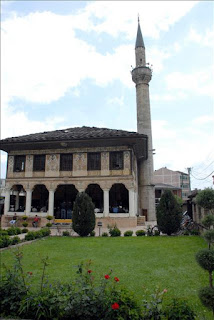The Balkans, which are crippled with many chronic issues such as minorities, deepening religious and ethnic divisions, and the Dayton Agreement, which gave an end to the bloody wars that erupted following the breakup of Yugoslavia, yet imprisoned the region to “a political deadlock,” are on the verge of a new process which will either lead to a “permanent and institutionalized stability,” or a new wave of violence. Global actor’s intervention on “stability” grounds toward Balkan countries, in the last instance, takes place in the backup of strategic goals such as alliance axes and procurement of energy routes. Turkey, which has deeply-rooted historical and cultural ties with the Balkans, has identified the region as one of the key elements of its foreign policy; and continues its activities in the region with an embracing perspective that is in the words of Prime Minister Ahmet Davutoglu “not crisis but vision-focused”. These activities are pursued in a way t...
